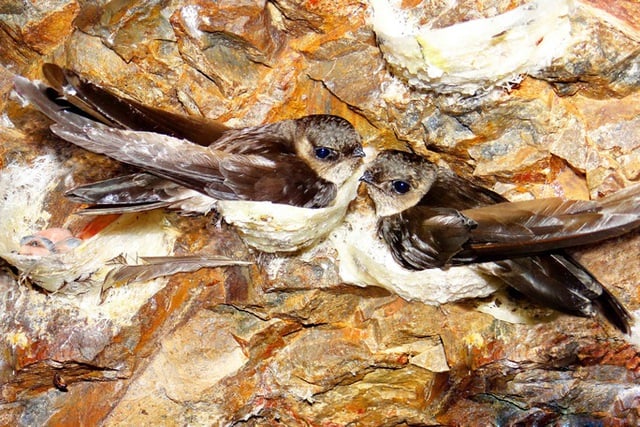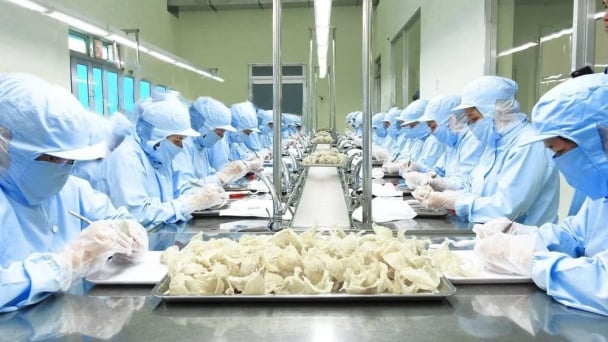May 16, 2025 | 08:45 GMT +7
May 16, 2025 | 08:45 GMT +7
Hotline: 0913.378.918
May 16, 2025 | 08:45 GMT +7
Hotline: 0913.378.918

On November 16, Minister of Agriculture and Rural Development Le Minh Hoan signed the Protocol to officially export swiftlet nest to China. Photo: Pham Hieu.
Recently on November 10, the Ministry of Agriculture and Rural Development (MARD) received an express dispatch from the Embassy of Vietnam in China about the information that the General Department of Customs of China (GACC) had signed the Protocol to export Vietnamese swiftlet nest to China. On November 16, Minister of Agriculture and Rural Development Le Minh Hoan also officially approved the content of the protocol.
It can be seen that the export of Vietnamese swiftlet nests to China holds great potential since China is the world's largest market for this product, accounting for 80% of the global market share. According to the specialized data on swiftlet nests in China, in 2019 China imported 180 tons of swiftlet nests, 220 tons in 2020 and more than 300 tons in 2021.
Meanwhile, Vietnam can strongly develop swiftlet farming thanks to having a long coastline as well as numerous bays, islands, and lagoons. Vietnamese swiftlet’s nest is considered superior to that of other countries in the region in terms of quality and popularity in the China market. Vietnam’s geographical location makes it convenient to trade and transport products to China, which creates another huge advantage for the Vietnamese swiftlet nest.
One side has the market, one side has the advantages, the swiftlet’s nest industry in Vietnam is evaluated to have great economic value and export potential. Therefore, in 2019, the MARD set swiftlet’s nest as a product of focus, negotiated and submitted dossiers to the GACC in an attempt to have swiftlet’s nest exported to this 1.4-billion-people market.

Vietnamese swiftlet’s nest is considered superior to that of other countries in the region in terms of quality and popularity in the China market. Photo: TL.
Minister Le Minh Hoan said that the efforts so far had born fruit, which was the Protocol to export Vietnamese swiftlet’s nest to China, completing the process of bringing one of the world's most high-priced foods to China through the official route.
According to Minister Le Minh Hoan, after both parties had completed the signing of the protocol, the MARD assigned relevant agencies to organize a conference to disseminate the content of the Protocol to export Vietnamese swiftlet’s nest to China to all associations, businesses and people in localities so that all forces can proactively prepare and meet the conditions for export.
In the long run, the MARD will direct through specific strategies and plans to develop the industry responsibly and sustainably and ensure that the brand name of Vietnamese swiftlet’s nest gains a firm foothold in China as well as other international markets.
“The ministry’s standpoint is to make the entire supervision process transparent and send to the GACC eligible businesses. Businesses and communities of swiftlet farmers must therefore restructure the industry according to the value chain, promote linkages for sustainable development, and avoid unfair competition," said Minister Le Minh Hoan.
Vietnamese pomelos and lemons are exported to New Zealand
On the occasion of New Zealand Prime Minister Jacinda Ardern’s visit to Vietnam, the Ministry of Agriculture and Rural Development of Vietnam and the New Zealand Ministry of Primary Industries signed an agreement to open the export market of Vietnam's lime and pomelo to New Zealand.
Accordingly, pomelo and lemon are the fourth and fifth fruits exported from Vietnam to New Zealand after mango, dragon fruit and rambutan. The signing and opening of the market for these two agro-products is a stepping stone towards the next trade opportunities between the two countries, opening the market for other agricultural products.
Sharing more comments about this joyful event, Minister of Agriculture and Rural Development Le Minh Hoan said that the income level is high. The opening of Vietnam's two tropical fruits, lime and pomelo, which are not available on your side, is a great opportunity for Vietnamese agricultural products to access this potential market.
Working groups of the two countries are currently taking necessary steps to pilot the electronic certification system, promoting market opening procedures for agro-products. New Zealand is also committed to continuing funding the implementation of the high-quality fruit trees development project (VietFruit) to help Vietnamese farmers develop high-class fruit varieties and participate in the high-value supply chain.
Trung Pham
Translated by Samuel Pham

(VAN) Japan's efforts to lower the price of rice through the release of its stockpile may finally be making some progress, albeit at a snail's pace.

(VAN) U.S. tariffs are not only a 'shock', but also an opportunity for Vietnamese businesses to renew their mindset toward comprehensive development.

(VAN) As Bac Giang lychee enters the harvest season, Minister Do Duc Duy expects that the fruit will contribute greatly to agricultural exports due to standardized production and deep processing.

(VAN) Consumers have shown a preference for free-range eggs, but those farming systems are more vulnerable to biosecurity risks like bird flu.
/2025/05/09/5701-1-184335_301.jpg)
(VAN) Vietnam’s eel exports nearly doubled thanks to a mud-free farming model, opening up new prospects while still facing numerous barriers related to international standards.

(VAN) Minister Do Duc Duy warned that if production is not professionalized and supply chains are not transparent, the U.S. market could become a growth bottleneck.

(VAN) Delegating surveillance responsibilities to local authorities is a cost-saving and efficiency-boosting measure that removes a key bottleneck for enterprises, according to Director General Duong Tat Thang.